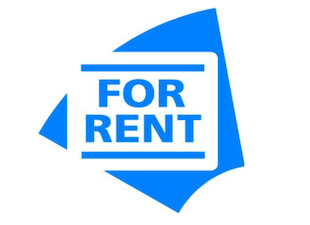In keeping with this convention, through the rest of this course I usually refer to timeshare intervals as "timeshare weeks" or "weeks". In addition to the purchase cost, timeshare owners likewise pay an annual charge for residential or commercial property maintenance and management. The majority of timeshare tasks also schedule a couple of one weeks use of each system for repair and maintenance. Historically, lots of timeshare designers have actually used high-pressure and misleading sales methods, Go to this site with misleading and incorrect portrayals of what buyers might get out of their timeshare ownership. The timeshare market has also had its share of dishonest and dishonest resort designers and operators. Consequently, timesharing has a bad reputation with numerous people. Exchange worth. Exchange worth is the capability of a timeshare week to exchange for another timeshare week. Some weeks are better and preferable than others. If you wish to routinely utilize your week for exchanging, you need to be familiar with the exchange value of the weeks you wish to get and be sure that you buy a week that will have the needed value to complete these exchanges. Normally, exchanges are completed using weeks of comparable value. If the week you get more info own is a lower worth week than the areas you wish to exchange into, you need to comprehend this and plan your exchanges accordingly.
To be able to prepare your exchanges, you need to able to forecast reasonably well the exchange worth of your week. The highest exchange worth predictability accompanies a points program. In a points program you know precisely what your exchange worth remains in points, and how numerous points are required to finish exchanges to other resorts in which you are interested. Many trip clubs likewise have a high degree of predictability, at least for exchanges completed within the club. With fixed weeks, the usage duration is the exact same every year. Therefore, the part of exchange value that is related to the season will typically be the exact same from year to year; some variations in this can occur, however, if the week occasionally includes a major vacation.
With floating weeks, the exchange value will depend upon the demand for the week that you get to transfer into http://hectorglnh361.iamarrows.com/what-does-how-do-you-get-rid-of-a-timeshare-do your account. As described in Lesson 3, in numerous drifting week resorts owners may have little or no capability to select the week that appointed to them for exchanging. How far in advance of usage you can transfer a week. With fixed weeks, the usage dates are repaired and understood. For that reason, you can normally deposit set weeks with exchange business as far beforehand as an exchange business will allow (usually 2 years). On the other hand, with floating weeks, you typically can't deposit weeks earlier than the resort will permit reservations to be made.


Therefore, fixed weeks allow you to conduct longer variety vacation planning. Ability to split a week. The majority of points systems will allow you to reserve units for less than one week. Some drifting week resorts and trip clubs will likewise permit you to split your use right into separate weekend and weekday periods. Fixed week resorts normally have no arrangements for splitting a week. Frequency of timeshare usage. what do i need to know about renting out my timeshare?. A lot of timeshare programs are based upon yearly use of the timeshare. If your trip schedule or preferences are such that you would not use a timeshare every year, you must purchase an unit in a program that accommodates this circumstance.
The Single Strategy To Use For Who Has The Best Timeshare Program
As the name suggests, with an EOY ownership your usage right happens every other year. Purchase expenses for such a system are correspondingly less. Yearly charges for an EOY are generally dealt with in one of two methods: 1) you pay a full yearly charge, but only for the year for which you have an usage right; or 2) you share of a complete charge every year. Points programs likewise work well if you don't getaway annually, considering that the points will typically rollover to the next year if you do not utilize them. Some trip clubs will likewise allow you to bring over a vacation use into the next year.
With a deeded residential or commercial property, you are a part owner of the property; if the home supervisor becomes defunct, you will still own your share of the home. In contrast, when the operator of a right-to-use home becomes defunct, your only claim on the property is as one of many other creditors. Also, in a deeded residential or commercial property, the homeowners association can usually change the resort supervisor if they choose. In a right-to-use residential or commercial property, the owner and operator are typically the very same entity or are carefully associated entities (who has the best timeshare program). You need to also think about the years of use remaining on a right-to-use contract, particularly as it compares to your long-range getaway plans.
If you just prepare to vacation for about ten years, purchase of a right-to-use with about 10 years of remaining life might be rather useful and cost-effective. In a lockout unit, the layout of the unit permits the unit to be divided into two subunits, each of which can be inhabited individually. Normally, a two-bedroom lockout system usually divides into a hotel unit and a one-bedroom system. The lockout feature considerably increases your versatility in utilizing the system. For example, one year you might occupy the system as a full two-bedroom system. Another year, if there were fewer individuals in your celebration, you could decide to occupy simply the one-bedroom part and deposit the hotel unit with an exchange business - what are the numbers for timeshare opt-outs in branson missouri.